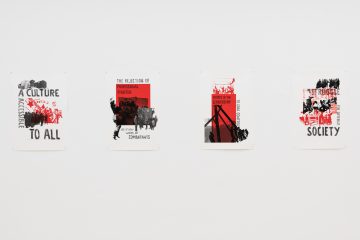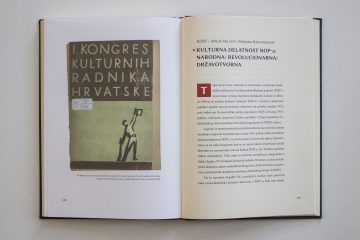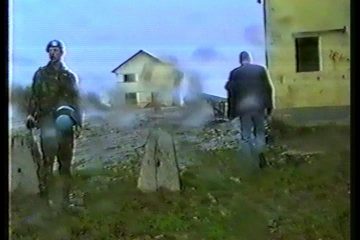Vortrag von Vlad Morariu am 28. März 2014 im Künstlerhaus Büchsenhausen im Rahmen des Symposiums /Politisches Vermögen – der Sinn der Subjektivierung/
Vlad Morariu schreibt über das Konzept dieser Präsentation:
„I have conceived this intervention as an event that does not represent the political deconstructive subject, but rather creates him/her temporarily within the frames of the symposium ‚Political Abilities‘. My strategy was that of operating three different types of displacement. First, it addressed the main theme of the symposium, that of ‚Political Abilities‘, by rather talking about ‚political inabilities‘ and about a certain undecidability which conditions any political decision and, consequently, the formation of the subject as a political subject. One of the threads of the presentation referred to a personal story about undecidability and decision stemming from my participation in an art project with political aims, but which proved to be difficult to manage due to a multitude of ethical, cultural, and ideological positions that annihilated one another. Second, this intervention addressed the format of the symposium which, though taking part in an art institution (Künstlerhaus Büchsenhausen), remained an academic type of encounter. The presentation, therefore, did not have a main argument or a hypothesis to be demonstrated; it rather concatenated different types of speech and writing, from personal correspondence, to artists/institutional statements, to fragments of my own research and, finally, to attempts of connecting them to Jacques Derrida’s reflections on justice, law, undecidibality and decision. The idea behind this move was that no event is entirely political unless it reflects on the very frames which condition it. Third, this intervention displaced the rule of the textual and aural, by turning the audience’s attention to the visual: on display there was the front page of a tabloid newspaper with sensationalist titles expressing a conservative standpoint and referring to instances and events of political art projects, interventions, and gestures. Its main headline read ‚Shocking experience: the ghost of Institutional Critique was seen at Elsinore Castle‘. This referred, on the one hand, to Shakespeare’s ‚Hamlet‘ as a story of political murder, but also as a story about the return of the repressed; on the other hand, it referred to Derrida’s ‚Specters of Marx‘, where Hamlet’s story is the leading thread of a project which thinks Marxism as a political hauntology. This visual companion, again suppressed by the limitations of a radio broadcast, was to point to the inescapable faith of contemporary political/artistic gestures: that no matter how radical or insightful, they inevitably get co-opted, tamed, neutralized and impoverished as a message on the surfaces of the mainstream media. The job of the political subject, therefore, is that of an endless deconstruction: for once a decision has been met, and politics articulated, one will have to start, so to say, each and every time, all over again.“











